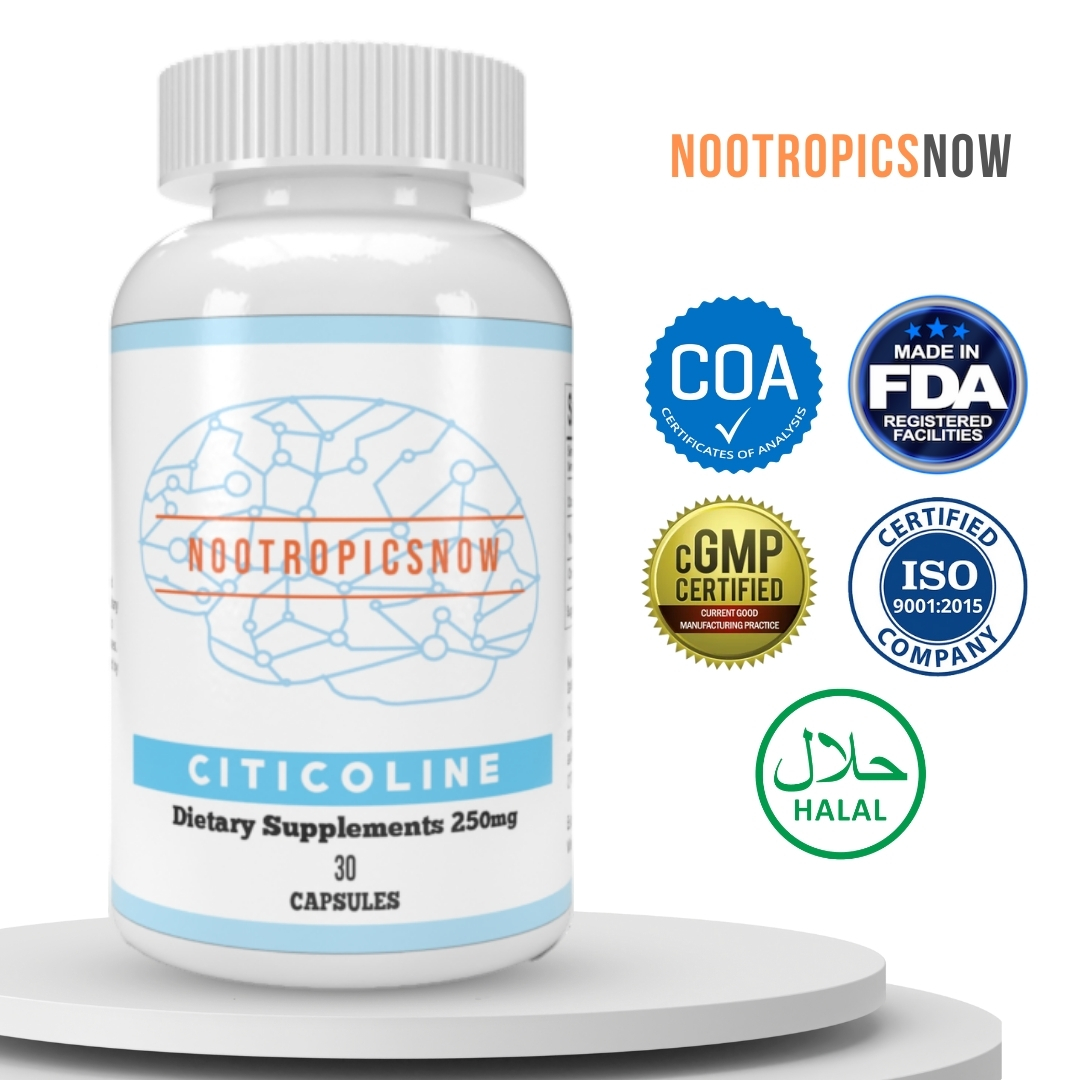Choline & Modafinil: Brain Boost Guide

Understanding Choline
Choline is a vital nutrient that belongs to the vitamin B family, even though it’s often not categorized as a traditional vitamin. It plays a pivotal role in numerous bodily functions, most notably in brain health, nerve function, muscle movement, and metabolism. Since the human body only produces small amounts of choline, obtaining it through dietary sources or supplements is crucial. Rich food sources include eggs, liver, soybeans, beef, and certain nuts and seeds. However, many individuals don’t consume enough of these foods regularly, therefore they look to supplementation to meet their daily requirements.
Key Functions of Choline
Choline’s functions are diverse and critically important:
Types of Choline Supplements
Several forms of choline supplements are available, each offering different benefits and absorption rates:
Modafinil: An Overview
Modafinil is a prescription drug primarily used to treat sleep disorders such as narcolepsy, shift work sleep disorder, and obstructive sleep apnea. While not a traditional stimulant like amphetamines, modafinil promotes wakefulness and enhances focus by affecting neurotransmitters in the brain. It is increasingly used off-label as a cognitive enhancer by students, professionals, and individuals seeking improved mental performance. However, it is critical to use Modafinil responsibly and under the guidance of a healthcare provider.

View Product
How Modafinil Works
Modafinil’s mechanism of action is multifaceted and not fully understood, but it primarily affects several key neurotransmitter systems in the brain:
Common Side Effects of Modafinil
While Modafinil is generally well-tolerated, it can cause several side effects:
Long-Term Effects and Tolerance
Long-term use of Modafinil can lead to tolerance, meaning that the user needs a higher dose to achieve the same effects. Additionally, some studies suggest that prolonged use may have other long-term effects that are not yet fully understood. It is essential to monitor the effects of Modafinil use and consult with a healthcare professional.
Responsible Use of Modafinil
Using Modafinil responsibly involves several key considerations:
The Rationale Behind Combining Choline and Modafinil
Combining choline with modafinil is a strategy employed to mitigate some of the side effects associated with modafinil and potentially enhance its cognitive benefits. The rationale for this combination rests on the biochemical processes influenced by both substances in the brain.
Addressing Modafinil-Induced Choline Depletion
Modafinil can increase the activity of acetylcholine, a key neurotransmitter involved in cognitive functions such as memory and focus. As modafinil boosts acetylcholine neurotransmission, it can deplete the brain’s choline reserves, which are necessary for the synthesis of acetylcholine. This depletion can lead to side effects such as headaches, brain fog, and decreased cognitive performance. Supplementing with choline helps replenish these reserves, maintaining optimal acetylcholine levels and alleviating these side effects.
Supporting Cognitive Functions
Choline supplementation can enhance the cognitive benefits of modafinil. By providing the building blocks for acetylcholine, choline supports memory, learning, and overall cognitive function. This synergistic effect can result in a more sustained and balanced improvement in mental performance compared to using modafinil alone.
Potential Benefits of the Combination
The combination of choline and modafinil offers several potential benefits:
Forms of Choline Suitable for Modafinil Users
When considering choline supplementation alongside modafinil, choosing the right form of choline is crucial. Different forms offer varying levels of bioavailability and effectiveness in supporting cognitive function.
Alpha-GPC (Alpha-Glycerylphosphorylcholine)
Alpha-GPC is often considered the most effective form of choline for cognitive enhancement. It readily crosses the blood-brain barrier, allowing it to directly increase choline levels in the brain. Alpha-GPC is particularly effective in boosting acetylcholine production, which is essential for memory, learning, and focus. Studies have shown that Alpha-GPC can improve cognitive performance and memory, making it an excellent choice for modafinil users looking to enhance its cognitive benefits.

View Product
CDP-Choline (Citicoline)
CDP-choline is another high-quality form of choline that converts to both choline and cytidine in the body. Cytidine is then converted to uridine, a nucleotide that supports brain health. CDP-choline is known for its neuroprotective properties and can improve cognitive function, memory, and attention. It is also effective in supporting brain health and protecting against age-related cognitive decline.

View Product
Choline Bitartrate
Choline bitartrate is a more cost-effective option, but it may not be as effective as Alpha-GPC or CDP-choline. While it does provide choline, it is less efficient at crossing the blood-brain barrier, meaning that it may not significantly boost brain choline levels. However, it can still be beneficial in preventing choline deficiency and supporting overall health. It is often used as a basic choline supplement for those who may not require the more targeted effects of Alpha-GPC or CDP-choline.
Phosphatidylcholine
Phosphatidylcholine is the primary form of choline found in foods and is a component of lecithin. It supports overall cellular health, particularly liver health and fat metabolism. While it may not be as directly effective in boosting cognitive function as Alpha-GPC or CDP-choline, phosphatidylcholine provides a steady supply of choline and supports overall well-being. It is a good option for those looking to improve general health and choline intake.
How to Incorporate Choline into Your Modafinil Regimen

Integrating choline supplementation into a modafinil regimen requires careful consideration of dosage, timing, and individual response. Starting with a low dose and gradually increasing it based on how your body responds is generally advisable.
Determining the Right Dosage
The optimal dosage of choline can vary depending on the form of choline, individual needs, and the specific goals of supplementation. Here are some general guidelines:
Timing Your Choline Supplementation
The timing of choline supplementation can also impact its effectiveness. Many users find it beneficial to take choline concurrently with modafinil. For example, if you take modafinil in the morning, take your choline supplement at the same time. This helps ensure that choline is readily available to support acetylcholine production as modafinil increases neurotransmitter activity.
Some users also find it helpful to divide their choline dose, taking half in the morning with modafinil and the other half later in the day to maintain stable choline levels. However, avoid taking choline too close to bedtime, as it can sometimes cause insomnia.
Monitoring and Adjusting Your Regimen
It’s essential to monitor how your body responds to the combination of choline and modafinil. Keep a journal to track any changes in cognitive function, side effects, and overall well-being. If you experience improvements in focus, memory, or a reduction in headaches, this indicates that the combination is working well.
If you experience any adverse effects, such as gastrointestinal distress or mood changes, reduce the choline dosage or try a different form of choline. It may take some experimentation to find the optimal dosage and timing that works best for you.
Potential Side Effects and Interactions
While choline is generally safe, it can cause side effects in some individuals, particularly at high doses. Common side effects include:
If you experience any of these side effects, reduce your choline dosage or discontinue use. Additionally, be aware of potential interactions with other medications or supplements. Consult with a healthcare professional before starting choline supplementation, especially if you have any underlying health conditions or are taking other medications.
Real-World Experiences and Anecdotal Evidence
Many users who combine choline with modafinil report positive outcomes, including reduced headaches, improved focus, and enhanced cognitive performance. These anecdotal reports can provide valuable insights into the potential benefits of this combination.
Reports of Reduced Headaches
One of the most common reasons users combine choline with modafinil is to prevent or alleviate headaches. Many individuals report that taking choline significantly reduces the frequency and severity of modafinil-induced headaches. For example, some users find that a daily dose of Alpha-GPC or CDP-choline completely eliminates their headaches, allowing them to benefit from modafinil without the discomfort.
Improved Focus and Memory
Several users also report improved focus and memory when combining choline with modafinil. They find that the combination helps them stay focused for longer periods, improves their ability to retain information, and enhances their overall cognitive performance. This synergistic effect is particularly beneficial for those who rely on modafinil for demanding tasks or intensive study sessions.
Enhanced Cognitive Performance
In addition to improved focus and memory, some users report a general enhancement in cognitive performance when combining choline with modafinil. They find that the combination helps them think more clearly, solve problems more effectively, and make better decisions. This overall cognitive boost can lead to increased productivity and improved performance in various aspects of life.
Cautions and Considerations
While anecdotal evidence can be helpful, it is essential to approach these reports with caution. Individual responses to choline and modafinil can vary, and what works well for one person may not work for another. Additionally, anecdotal reports are not a substitute for scientific evidence.
Before starting any new supplement regimen, it is crucial to consult with a healthcare professional. They can assess your individual needs, evaluate potential risks, and provide personalized recommendations. Always prioritize your health and safety when considering any new combination of supplements and medications.
Scientific Research and Studies
While there is limited direct scientific research on the combination of choline and modafinil, several studies support the individual benefits of each substance and provide a rationale for their combined use.
Studies on Choline
Numerous studies have examined the effects of choline on cognitive function and brain health. These studies have shown that choline supplementation can improve memory, enhance learning, and protect against cognitive decline.
For example, a study published in the “American Journal of Clinical Nutrition” found that higher choline intake was associated with better cognitive performance in older adults. Another study published in “Brain Research” showed that choline supplementation improved memory and learning in rats.
Studies on Modafinil
Many studies have investigated the effects of modafinil on wakefulness, focus, and cognitive performance. These studies have shown that modafinil can improve alertness, enhance concentration, and increase productivity.
A meta-analysis published in “European Neuropsychopharmacology” found that modafinil significantly improved cognitive function in healthy individuals. Another study published in the “Journal of Clinical Sleep Medicine” showed that modafinil reduced daytime sleepiness and improved alertness in patients with narcolepsy.
Rationale for Combined Use
The rationale for combining choline and modafinil is based on the complementary effects of each substance. Modafinil increases neurotransmitter activity, while choline provides the building blocks needed to support this activity. By combining these two substances, users may be able to maximize the cognitive benefits of modafinil while minimizing potential side effects.
Potential Legal and Ethical Considerations
When considering the use of modafinil and choline, it is important to be aware of the potential legal and ethical considerations. Modafinil is a prescription drug in many
Choline and Modafinil: A Synergistic Approach to Cognitive Enhancement
Modafinil, widely known for its cognitive-enhancing effects, has become a popular choice for individuals seeking to improve focus, alertness, and overall mental performance. However, some users experience side effects such as headaches, which can detract from Modafinil’s benefits. Choline, an essential nutrient, offers a potential solution to mitigate these side effects and enhance Modafinil’s cognitive benefits further. This section explores the relationship between Choline and Modafinil, examining their individual roles and the potential synergistic effects of combining them.
Understanding the Roles of Modafinil and Choline
Before delving into the combined use of Choline and Modafinil, it’s crucial to understand each substance’s individual roles and mechanisms of action.
Modafinil: The Wakefulness-Promoting Agent
Modafinil is a prescription medication primarily used to treat sleep disorders such as narcolepsy, shift work sleep disorder, and obstructive sleep apnea. However, its cognitive-enhancing properties have led to its off-label use among students, professionals, and others seeking a mental edge.
Choline: The Essential Nutrient for Brain Health
Choline is an essential nutrient vital for various bodily functions, including brain health, nerve function, and cell membrane structure. It is a precursor to acetylcholine, a neurotransmitter crucial for memory, learning, and muscle control.
Here’s an example of an Alpha-GPC supplement:

View Product
The Rationale for Combining Choline and Modafinil
The combination of Choline and Modafinil stems from the understanding that Modafinil’s effects on neurotransmitter systems can potentially deplete choline levels in the brain. This depletion may contribute to some of the side effects associated with Modafinil use, particularly headaches.
Mitigating Modafinil-Induced Headaches
As mentioned earlier, headaches are a common side effect of Modafinil. The rationale behind combining Choline with Modafinil is that Choline supplementation can replenish the brain’s Choline levels, thereby reducing or preventing these headaches.
Enhancing Cognitive Benefits
Beyond mitigating headaches, Choline may also enhance Modafinil’s cognitive benefits. By supporting acetylcholine synthesis, Choline can further improve memory, learning, and overall cognitive function.
Types of Choline Supplements
When considering Choline supplementation to complement Modafinil use, it’s essential to understand the different types of Choline supplements available. Each form has unique properties and bioavailability, influencing its effectiveness.
Choline Bitartrate
Choline Bitartrate is one of the most common and affordable forms of Choline supplements. It is readily available and easily absorbed by the body.
CDP-Choline (Citicoline)
CDP-Choline, also known as Citicoline, is a more bioavailable form of Choline that readily crosses the blood-brain barrier. It is converted into both Choline and cytidine, which can then be used to synthesize uridine, another important nutrient for brain health.
Here’s an example of a CDP-Choline supplement:

View Product
Alpha-GPC
Alpha-GPC (Alpha-Glycerylphosphorylcholine) is another highly bioavailable form of Choline that readily crosses the blood-brain barrier. It is converted into Choline and glycerophosphate, both of which are beneficial for brain health.
Choosing the Right Form
The choice of Choline supplement depends on individual needs, preferences, and budget. Choline Bitartrate is a cost-effective option for general Choline supplementation, while CDP-Choline and Alpha-GPC are preferred for their higher bioavailability and cognitive-enhancing effects.
Dosage and Timing
Determining the appropriate dosage and timing of Choline supplementation is crucial for maximizing its benefits and minimizing potential side effects. It’s important to note that individual needs may vary, and it’s always best to consult with a healthcare professional before starting any new supplement regimen.
Recommended Dosage
The recommended dosage of Choline varies depending on the form of Choline used and individual factors such as age, sex, and overall health.
It’s generally recommended to start with a lower dosage and gradually increase it as needed, monitoring for any side effects.
Timing
The timing of Choline supplementation can also influence its effectiveness.
Potential Side Effects and Precautions
While Choline is generally safe, some individuals may experience side effects, particularly at higher doses. It’s essential to be aware of these potential side effects and take appropriate precautions.
Common Side Effects
Precautions
Real-World Experiences and User Reports
Anecdotal evidence from Modafinil users provides valuable insights into the potential benefits and drawbacks of combining Choline and Modafinil. While these reports should be interpreted with caution, they can offer helpful guidance for those considering this combination.
Positive Experiences
Negative Experiences
Reddit Discussions and Online Forums
Online forums and Reddit discussions provide a wealth of information about user experiences with Choline and Modafinil. These platforms can be valuable resources for gathering information, asking questions, and sharing experiences with others.
By exploring these online communities, individuals can gain valuable insights into the potential benefits and drawbacks of combining Choline and Modafinil.
Conclusion: A Promising Combination for Cognitive Enhancement
The combination of Choline and Modafinil holds promise as a synergistic approach to cognitive enhancement. By mitigating Modafinil-induced headaches and potentially enhancing its cognitive benefits, Choline can help individuals maximize the effectiveness of Modafinil while minimizing its side effects. While more research is needed to fully understand the interactions between Choline and Modafinil, anecdotal evidence and preliminary studies suggest that this combination can be a valuable tool for those seeking to improve their cognitive performance. As with any supplement regimen, it’s essential to consult with a healthcare professional before starting Choline supplementation, particularly if you are already taking Modafinil or have any underlying health conditions. By approaching this combination with caution and awareness, individuals can potentially unlock its full potential for cognitive enhancement.



